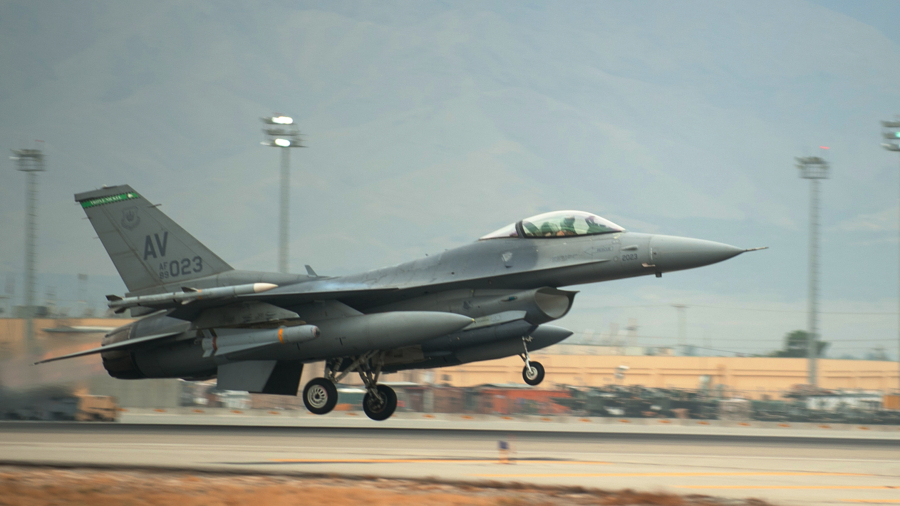WASHINGTON—Congress should move quickly with an $8 billion sale of F-16 fighter jets to Taiwan as China “seeks to extend its authoritarian reach” over the region, leading U.S. Democratic and Republican lawmakers said on Aug. 16.
Senate Foreign Relations Committee Chairman Jim Risch (R-Idaho), said in a statement that he welcomed the sale of Lockheed Martin Corp’s F-16 jets to boost Taiwan’s “ability to defend its sovereign airspace, which he said is “under increasing pressure” from China.
The deal “sends a strong message” about U.S. commitment to security and democracy in the region, House of Representatives Foreign Affairs Committee Chairman Eliot Engel (D-N.Y.) and Michael McCaul (R-Tex.) said in a joint statement.
They said the move will deter China as Beijing threatens “our strategic partner Taiwan and its democratic system of government.”
Senator Marco Rubio (R-Fla.) urged the U.S. Senate and House of Representatives Foreign Relations committees to move forward with the sale of Lockheed Martin Corp’s F-16 jets, which he said in a statement is “an important step in support of Taiwan’s self-defense efforts.”
Senator Ted Cruz (R-Texas), a member of the Senate Foreign Relations Committee and staunch Taiwan supporter, welcomed the notification.
“Today the administration took a critical step toward bolstering the national security of the United States and our longstanding ally Taiwan with the sale of F-16s,” he said in a statement. “With China building up its military to threaten us and our allies, and the People’s Liberation Army aiming thousands of missiles at Taiwan and deploying fighter aircrafts along the Taiwan Strait, now more than ever it is critical that Taiwan has the support needed to defend itself.”
The informal notification starts a period of consultations with Congress and a formal announcement of the sale could be made as early as next month unless lawmakers object. Cruz said he would work his colleagues to ensure the sale proceeds smoothly.
The notification also comes as U.S. trade talks with China are stalled and amid unrest in Hong Kong that many fear could prompt Beijing to move militarily against the former British colony.
After the United States approved sales of tanks and Raytheon Co’s anti-aircraft Stinger missiles to Taiwan in July, China said it was “ready to go to war” if people “try to split Taiwan from the country.”
Beijing said it would impose sanctions on U.S. companies involved in any deals. The United States and China are embroiled in a wider trade war.
On Thursday, Taiwan unveiled its largest defense spending increase in more than a decade, to T$411.3 billion ($13.11 billion).
The United States is the main arms supplier to Taiwan, which China deems a wayward province. Beijing has never renounced the use of force to bring the island under its control.
The United States has no formal ties with self-ruled and democratic Taiwan but is bound by law to help provide it with the means to defend itself. China has repeatedly denounced U.S. arms sales to the island.
Taiwan President Tsai Ing-wen has adamantly rejected Chinese pressure to reunite Taiwan and China under the “one country, two systems” framework that governs Hong Kong. She and many Taiwanese have said that the people of the island stand with the young people of Hong Kong who are fighting for democratic freedoms in ongoing protests.
Beijing has cut contacts with Tsai’s government over Tsai’s refusal to endorse its claim that Taiwan is a part of China and sought to increase Taiwan’s international isolation by reducing its number of diplomatic allies to just 17. China has also stepped up efforts at military intimidation, holding military exercises across the Taiwan Strait and circling the island with bombers and fighter jets.
By Bryan Pietsch. The Associated Press contributed to this report.

